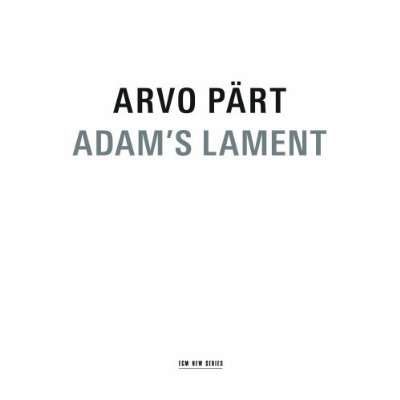|
Back
10/29/2012
Arvo Pärt: Adam’s Lament – Beatus Petronius – Salve Regina – Statuit ei Dominus – Alleluia Tropus – L’Abbé Agathon – Estonian Lullaby – Christmas Lullaby
Latvian Radio Choir, Vox Clamantis, Sinfonietta Riga, Estonian Philharmonic Choir, Tallinn Chamber Orchestra, Tönu Kaljuste (Conductor)
Recorded at Church of St. Nicolai, Tallinn, Estonia (2011) – 67’55
ECM B0017591-02 – Booklet in English

With marshalling orchestral and chorus forces under the inspired direction of Tönu Kaljuste, this new Arvo Pärt album is presented by ECM as “major musical event”. All the compositions featured in this CD, with the exception of the two concluding lullabies are recorded for the first time. Sacred music predominates, at times warm or chilling, at others, lugubrious.
Adam’s Lament for chorus and orchestra was commissioned by the capital cities of culture Istanbul (2010) and Tallin (2011). It is based on writings of Saint Silouan the Athonite (1866-1938) in which the Russian Orthodox monk describes Adam’s pain at the loss of Paradise. The premiere took place in Istanbul on June 7, 2010 under conductor Tönu Kaluste with the Borusan Istanbul Philharmonic and the Estonian Philharmonic Orchestras.
Kaljuste pins a deeply felt, captivating performance of this awe-inspiring, somber music. He allows Pärt’s composition to breathe freely, like no other conductor. The sound, served by the extraordinary acoustics of the Church of Saint Nicolaï in Tallinn, is crisp, clear, and hauntingly beautiful.
Adam’s Lament is complemented by a number of choral works composed earlier but never recorded, including L’Abbé Agathon, another weighty piece, Salve Regina, Statuit ei Dominus for choir, string orchestra, and woodwinds. Two lullabies round up this interesting release with ECM’s customary attention to detail, both in terms of presentation and performance. But a “major musical event”? Probably not. An overall impression of austerity and dreariness pervades this recording. It has its few moments of color and evanescent beauty but it lacks the depth of earlier works. After listening, have some Offenbach music ready to cheer you up. Or a glass of wine. Or both.
Christian Dalzon
|